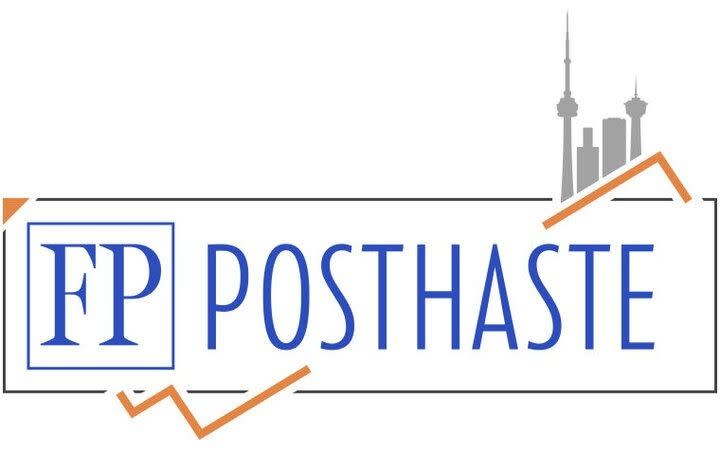Posthaste: Here are 14 Canadian cities where renters can afford to buy a house


Rising home prices and higher mortgage rates are making it increasingly difficult for renters to switch to homeownership, but first-time homebuyers in a handful of Canadian cities may have reason to hope.
In 14 of Canada’s 50 most populous cities, renters earn more than the income needed to buy a starter home, finds a new study by real estate marketplace Point2 Homes.
At the top of the list is Edmonton, followed by St. John’s, N.L.; Regina; Saguenay, Que.; Trois-Rivières, Que.; Quebec City; Lévis, Que.; Winnipeg; Saskatoon; Gatineau, Que.; Calgary; Sherbooke, Que.; Terrebonne, Que. and Laval, Que.
The study considered starter homes to be valued at half the city’s benchmark price and assumed a 20-per-cent down payment with a loan based on a 5.75 per cent, 25-year fixed-rate mortgage. It determined that the monthly mortgage should not represent more than 30 per cent of a renter’s household income. Given that criteria, renter household income is two to 52 per cent higher than the minimum income needed to comfortably afford a starter home in those 14 cities.
Edmonton offers renters their best bet for making the leap to homeownership, with household income around $70,000 and the price of a starter home hovering around $185,000. Using Point2Homes’ calculation, Edmonton renters earn $24,000 or 52 per cent more than the minimum income needed to buy an entry-level home in the city.
Though income plays an important role, lower home prices are the main reason renters can afford to fulfil their homeownership dreams in the 14 cities, with starter homes costing less than $200,000 in 10 of the cities on the list.
The news is less positive for renters living in 36 of Canada’s 50 largest cities, however. The study says they would need to earn up to 59 per cent more to afford a starter home. Ontario cities make up much of that list, with renters in Richmond Hill, Oakville, Markham, Vaughan and Burlington earning less than half the income they would need to buy a starter home. For example, renters in Richmond Hill, Oakville, Markham and Vaughan earn an average of $70,000 but would need between $158,677 and $169,749 to afford an entry-level house.
The situation isn’t much better outside the least affordable cities, Point2Homes said, and that’s causing stress for renters with dreams of buying a house.
“Being so far away from achieving their homeownership dream is a nightmare, but earning 80 per cent or even 90 per cent of the income needed to afford a home is the real Gordian knot: Not knowing whether to make the jump to homeownership or not keeps renters in a tense, frozen decisional space — their very own housing limbo,” report author Andra Hopulele wrote.
What’s more, starter homes are scarce in the most populous cities. Only 13 of the 50 largest cities have shares of entry-level houses above 10 per cent, Point2Homes said. Of those, only five meet all three criteria for affordability.
But for renters in Regina, Calgary, Edmonton, Saskatoon and Winnipeg, things are much brighter. In those cities, renters have enough income, starter homes have the right price and the market has the highest share of entry-level dwellings, a key factor that makes the difference for those seeking to become homeowners.
“It doesn’t matter if renters have the right incomes and home prices are low: Home seekers also need some options to choose from,” the study said.
_____________________________________________________________
Was this newsletter forwarded to you? Sign up here to get it delivered to your inbox.
_____________________________________________________________

Mackenzie Investments has cut about 50 jobs, including senior executive roles, as part of a restructuring by new chief executive Luke Gould, people familiar with the matter said. Mackenzie has been suffering from weak sales in its mutual fund business, partly because of competition from lower-cost products such as exchange-traded funds and the growing dominance of the Canada’s big banks in selling funds. The restructuring aims to reduce duplication and consolidate assets under fewer people, one of the people said. — Bloomberg
___________________________________________________
The parliamentary budget officer will post a report titled “Household purchasing power at different income levels since 2019” on the website at pbo-dpb.ca. This report examines household purchasing power at different income levels from 2019 to 2022
Today’s data: Canadian employment insurance; U.S. initial jobless claims, current account, existing home sales, leading indicators
Earnings: Empire Co. Ltd., Canopy Growth Corp.
___________________________________________________

_______________________________________________________
Canada Bread settles years-long price-fixing allegations, to pay $50-million fine
Rising retail sales strengthen case for Bank of Canada rate hike in July
Bank of Canada almost waited until July to hike interest rates
RBC faces pressure to bolster capital after banking watchdog hikes buffer
____________________________________________________
The summer after high school ends sets the stage for the next few years of a teenager’s life, but the tradition of accumulating debt soon after doesn’t have to hold your new grad back if they follow these eight steps offered by debt counsellor Sandra Fry.
____________________________________________________
Today’s Posthaste was written by Noella Ovid, with additional reporting from The Canadian Press, Thomson Reuters and Bloomberg.
Have a story idea, pitch, embargoed report, or a suggestion for this newsletter? Email us at posthaste@postmedia.com, or hit reply to send us a note.
Listen to Down to Business for in-depth discussions and insights into the latest in Canadian business, available wherever you get your podcasts. Check out the latest episode below:

 Yahoo Finance
Yahoo Finance 




